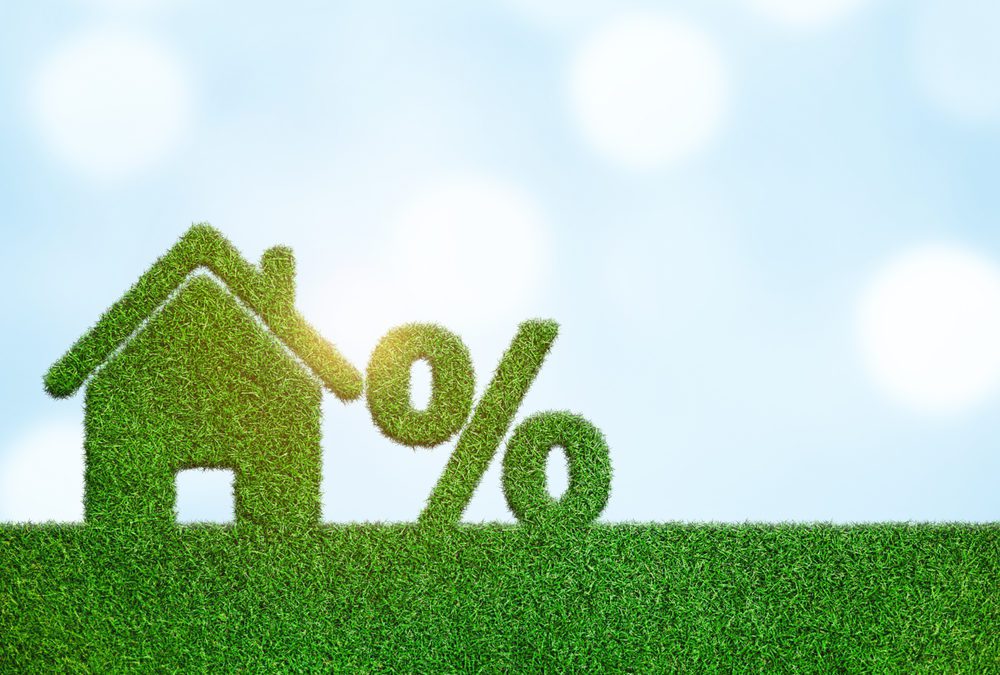Wondering if you should be considering trying to get a better deal on your mortgage? It’s certainly worth looking at to see if it would benefit you to switch to a new lender.
You might have heard that the Bank of England’s base rate – the bank’s set interest rate for loans to other banks – was recently reduced from 0.25 per cent to an all-time low of 0.1 per cent. If you’re a homeowner and have been wondering whether you should remortgage, depending on your circumstances, it could be well worth considering.
What does remortgaging mean?
Remortgaging simply means switching from your current mortgage deal to a new one, typically to either reduce your monthly repayments or to borrow more money against your property for home improvements. Rates can be attractive as lenders are keen to draw you in and are normally fairly competitive (and fixed) for the first two years. Ten-year fixed rate deals are now at their lowest levels, and according to Moneyfacts, have dropped to an average of 2.76 per cent.
Why would you want to remortgage?
Here are some key reasons why you might want to look into remortgaging:
• To get a better deal and save money
• To borrow more money for home improvements (which can be cheaper than moving)
• To make overpayments if your current lender won’t let you and save money in the long-term (your income may have increased since you took out your current mortgage)
• To switch from an interest only to a repayment mortgage (therefore paying off your mortgage faster). Your current lender may let you do this, but if not you can switch
• You have a current fixed deal that’s up for renewal (when the fixed rate runs out, you’ll be transferred onto a standard variable rate which may be higher than the rate you have been paying)
• To obtain a more flexible mortgage that will allow you to take payment holidays
Explore your options now
If your current mortgage deal is coming to an end in the next several months, don’t delay the process of exploring your options. Remortgaging can take around two months, so start thinking about it now and get your paperwork in order (salary slips, bank statements, details of any loans, etc). Being organised will give your mortgage broker plenty of time to shop around to get you the best possible deal.
If you want to borrow money against your home, you will be able to take advantage of the lower rates, especially if your property is worth considerably more now than when you first took out your mortgage.
You can fix your mortgage rate for two, three, five or ten years – in some cases you may be able to get a 15-year-deal – however, the longer deals are normally at higher rates and criteria for being eligible may be more rigid.
Before you look at remortgaging, it’s worth checking to see if your current mortgage has an early repayment penalty and if so, what it would be. Early repayment fees vary but can typically be around two to five per cent of your current balance. If it’s higher than you’d anticipated, how long would you have to wait until there is no penalty and is it worth waiting? It might still be worth doing though – it’s important to do your calculations first and weigh up the early repayment penalty against what you would potentially save.
Reasons not to remortgage
There are some other reasons to not remortgage. If your existing mortgage debt is very small – around 50,000 – it may not be worth changing to a new lender as the fees may be high. If the value of your home has dropped and the amount you owe is a bigger proportion than the sum you previously borrowed, you may be in negative equity.
However, if you are interested to find out if it’s worth your while, then feel free to get in touch with MBA. Even if you think you have a competitive mortgage deal at present, it may be worth making sure you’re not able to get a better deal. If your circumstances are right, it could be an opportunity for you to save thousands of pounds in the long-term.
Please note: You may have to pay an early repayment charge to your existing lender if you remortgage. Your home may be repossessed if you do not keep up repayments on your mortgage. A fee of up to 1% of the mortgage amount may be charged depending on individual circumstances. A typical fee is £495.

